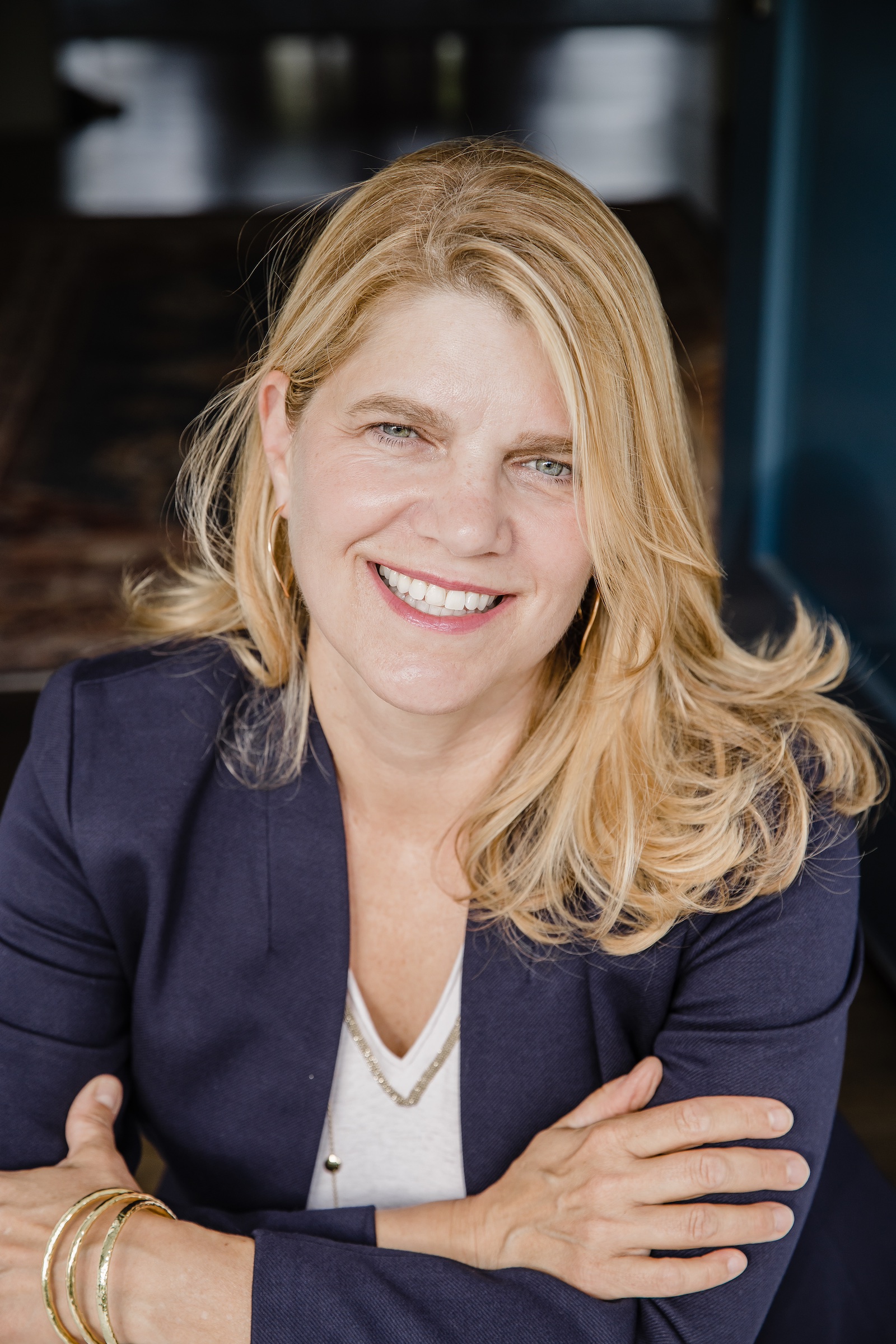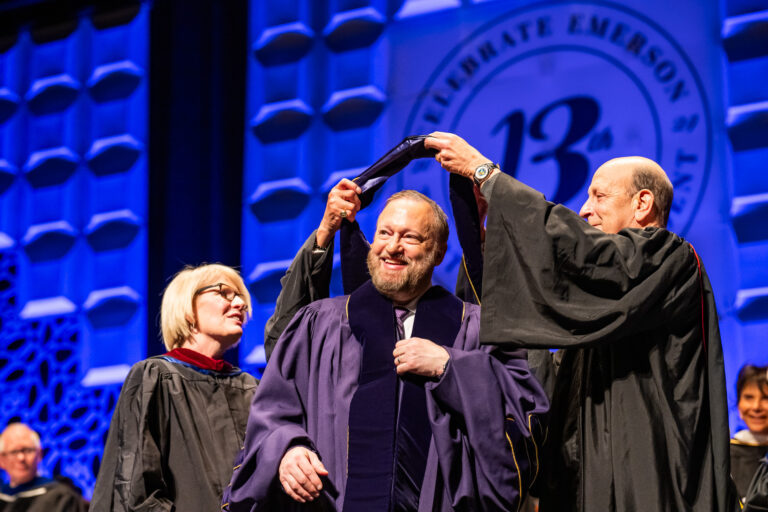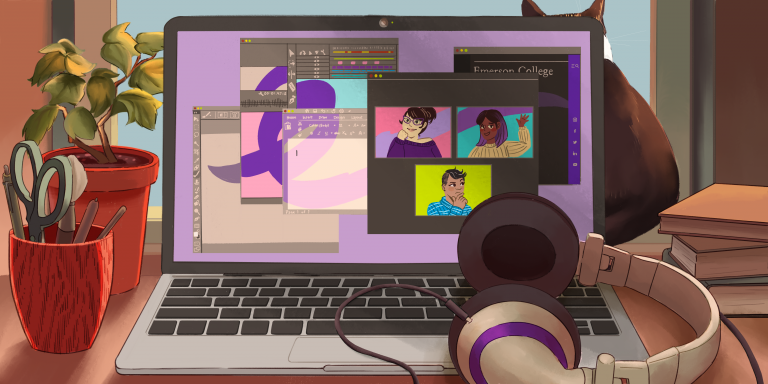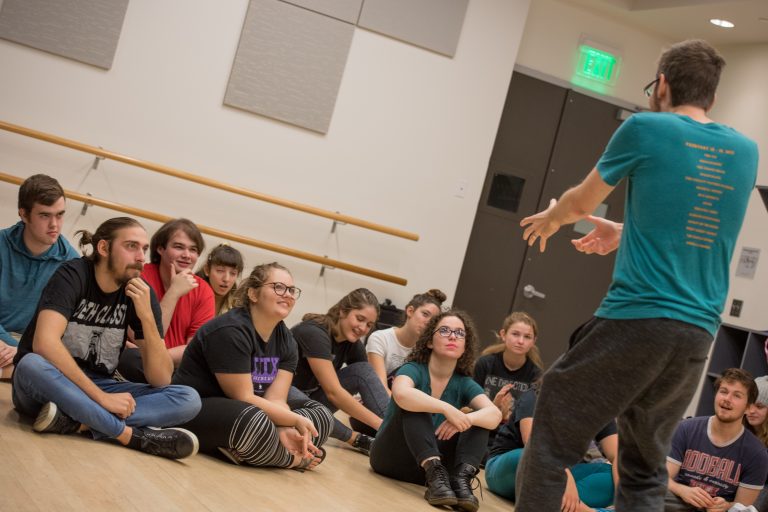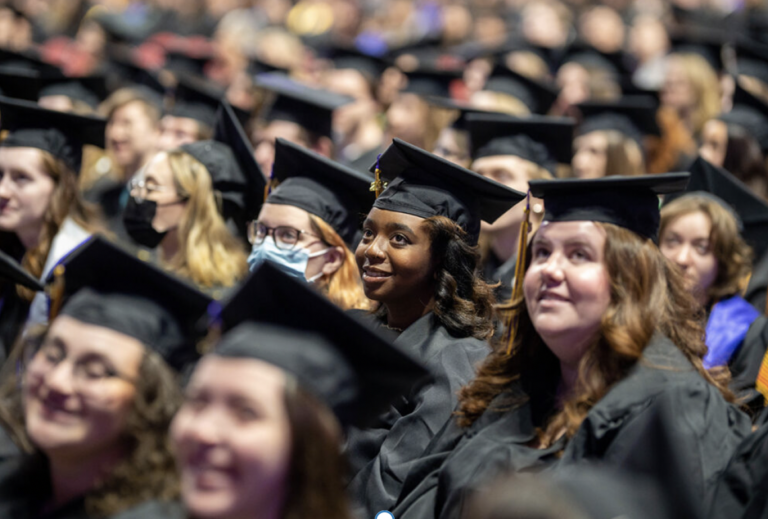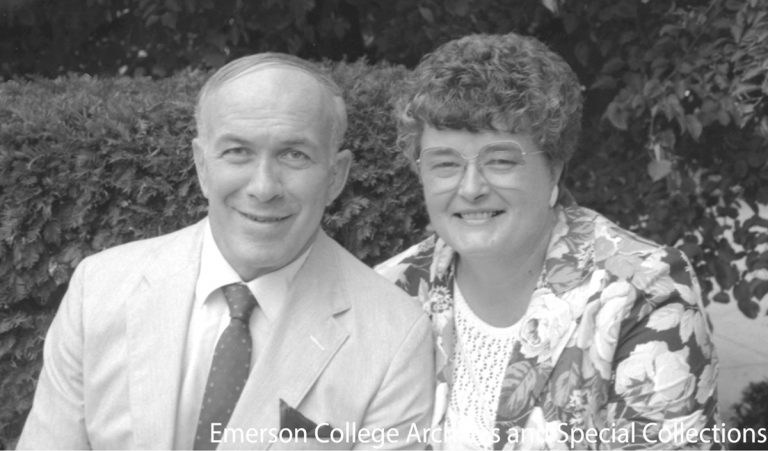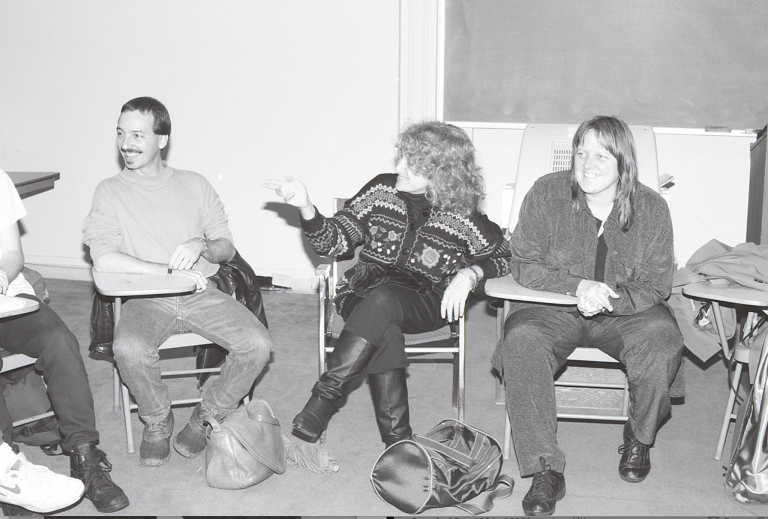From the Outside In
Leah Gambal ’92 began her career bringing to life some of the most beloved characters from children’s television—taking Barney on the road while working as a producer at Universal Studios Florida, for instance. Later, she spent 10 years at Sesame Workshop, where she began as a freelance producer and worked her way up to an international business strategy role, helping revive Sesame Street’s Russian co-production, Ulitsa Sezam, by negotiating a sponsorship deal with Nestle.
But her road to career success was difficult; learning sometimes felt impossible, particularly at an early age.
Gambal was diagnosed with dyslexia before the language-based learning disability was widely understood. She struggled in school and said she felt like an outsider, although today’s research shows it affects one in five kids.
“My earliest memories are of being in kindergarten, not fitting in. I wasn’t able to remember people’s names, find words in my head, or read simple sentences. I felt very lost because I just didn’t get it,” she remembers.
Her mom, also dyslexic, was a strong advocate. She steered Gambal through specialized schools, including The Lab School in Washington, DC, and Landmark School in Massachusetts, where, although she received tailored support, she felt excluded. Her parents even hired college students to read textbooks aloud and record them onto cassettes before the days of audiobooks. With proper scaffolding, she began to consider college. Her mom suggested Emerson; however, Gambal was set on—and started at—American University. But even with a reduced course load, access to tutors, and armed with all of her tenacity, Gambal soon realized that AU wasn’t the right fit for her. So she transferred to Emerson. “It was the first time in my whole life that I felt like I fit in and I found my people,” she says.
At Emerson, Gambal appreciated that her professors were flexible, imaginative, and accommodating with exams.
“This is back before it was in fashion, but I would get extended time. I would go to the basement of a building on Boylston Street, with my little Blue Book, and an administrator would sit with me, which was unheard of. They wanted me to succeed,” she recalls.
Public speaking classes—which have been a graduation requirement for decades—were especially intense, since Gambal often mixed up words. At the time, she dreaded it; now, she’s grateful.
“Being dyslexic, [I’d] see the word in my head and not say it. This class taught me how to be so incredibly confident. Now, if I’m in a meeting or speaking with someone and can’t find a word, no one questions me because I say it with such confidence. Emerson gave me that skill,” she says.
An internship at Boston WBZ-Radio’s Kid Company, featuring junior journalists reporting the news, sparked her love of producing. In this role, she could anticipate issues, which she calls a dyslexia “superpower.” She graduated with a degree in Mass Communication and Television.
“My superpower is being a problem-solver and understanding what needs to be done. The internship showed me that I had incredible strength that I could apply in a career in media,” she says.
She later became a project director at Sesame Workshop, producing tours starring beloved figures like Elmo. Years of sharpening her emotional intelligence and hands-on problem-solving skills paid off.
“When you have a learning disability, you have to figure out workarounds. You have to work three times as hard and be three times as prepared as everyone else. You have to be earlier than everybody else, and you have to think ahead of everybody else,” she says.
In 2015, she and her young family moved from Manhattan to suburban Westport, Connecticut, in part to support her two neurodiverse kids. Thanks to her dynamism and candor, she built a reputation as an advocate and navigator, mentoring other families as they encountered the special education maze. She knew whom to call, what tests to request, and how to bring people together. The informal support morphed into a busy educational consulting business, Access Consulting.
Gambal underscores that learning disabilities are as valid as physical ailments, and they deserve recognition and diagnoses.
“I say to parents, ‘Let’s imagine your child is playing on the soccer field. He breaks his leg. Do you say, ‘Get back in there and play?’ Or do you take them to the emergency room and get an X-ray?” she says. “If you know what type of learner your child is, you’re able to focus on their strengths and find the right team to get them through their educational journey. If you don’t, you’re going to be putting a circle into a square for the rest of their life.”
Her daughter, Isabel, is also dyslexic. With early intervention and the proper support through Orton-Gillingham, a specialized reading program, she’s now thriving in public high school.
“She’s a writer and a reader,” she says. “She’s still dyslexic. She has a disability. But there are methodologies that can actually retrain the brain.”
Gambal wants more families to experience this triumph, but the process is daunting: neuropsychological testing, evaluations, specialists. In partnership with the Neurodiversity Foundation, where she is a board member, she’s launching an online platform, MyAllyND, to reach even more people. Caregivers fill out a questionnaire to categorize their child’s learning style and receive a localized blueprint of resources and community support, plus data management for tracking copious assessments and medical records.
“This is for the working parent whose kid isn’t doing well in school, who’s up in the middle of the night Googling. MyAlly is your friend and mentor,” she says. The site is named for her mom, Alyce, who was always such a strong support. Now, Gambal says, she’s paying it forward.
“I’m incredibly grateful to Emerson for being flexible and supportive of my brilliance, and for all those teachers who were willing to take a chance and mentor me,” she says.

